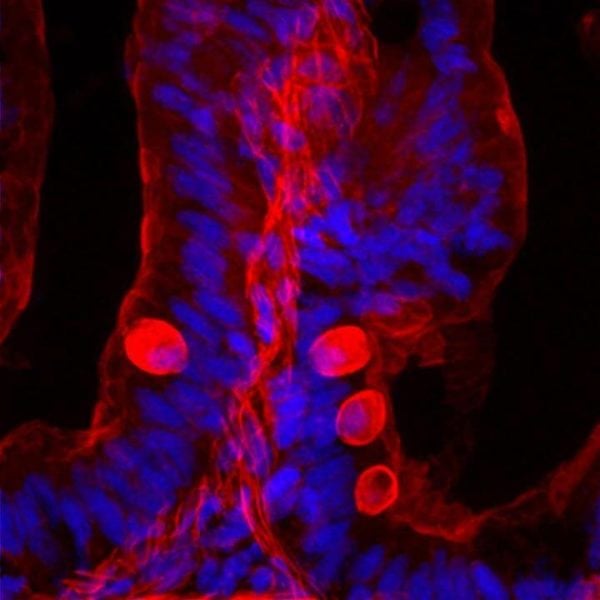The lining of the intestine is the most rapidly-renewing tissue in the body. Routine shedding of epithelial cells from this lining is a key element of tissue turnover, and is thus essential to maintaining optimal health. Altered shedding is associated with multiple disorders, ranging from inflammatory bowel disease (IBD) to colorectal cancer.
Researchers at The Saban Research Institute of Children’s Hospital Los Angeles (CHLA) looked at ways such shedding and cell regeneration are controlled in healthy intestine. Their study, currently published online by the Journal of Cell Science, showed that shedding is negatively regulated by epidermal growth factor (EGF) – an important driver of intestinal growth and differentiation.
“We found that, surprisingly, EGF suppresses shedding of epithelial cells in the intestine through a selective, MAPK-dependent signaling pathway,” said CHLA researcher Mark R. Frey, who is also an assistant professor of Pediatrics and Biochemistry at the Keck School of Medicine of the University of Southern California. His team used coordinated in vitro models (cell culture and 3-D culture systems) to study the effects of blocking MAPK pathways. Similar results were found in vivo, in a novel zebrafish model for intestinal epithelial shedding.
This insight could identify potential targets for correcting pathological shedding in diseases such as IBD.


